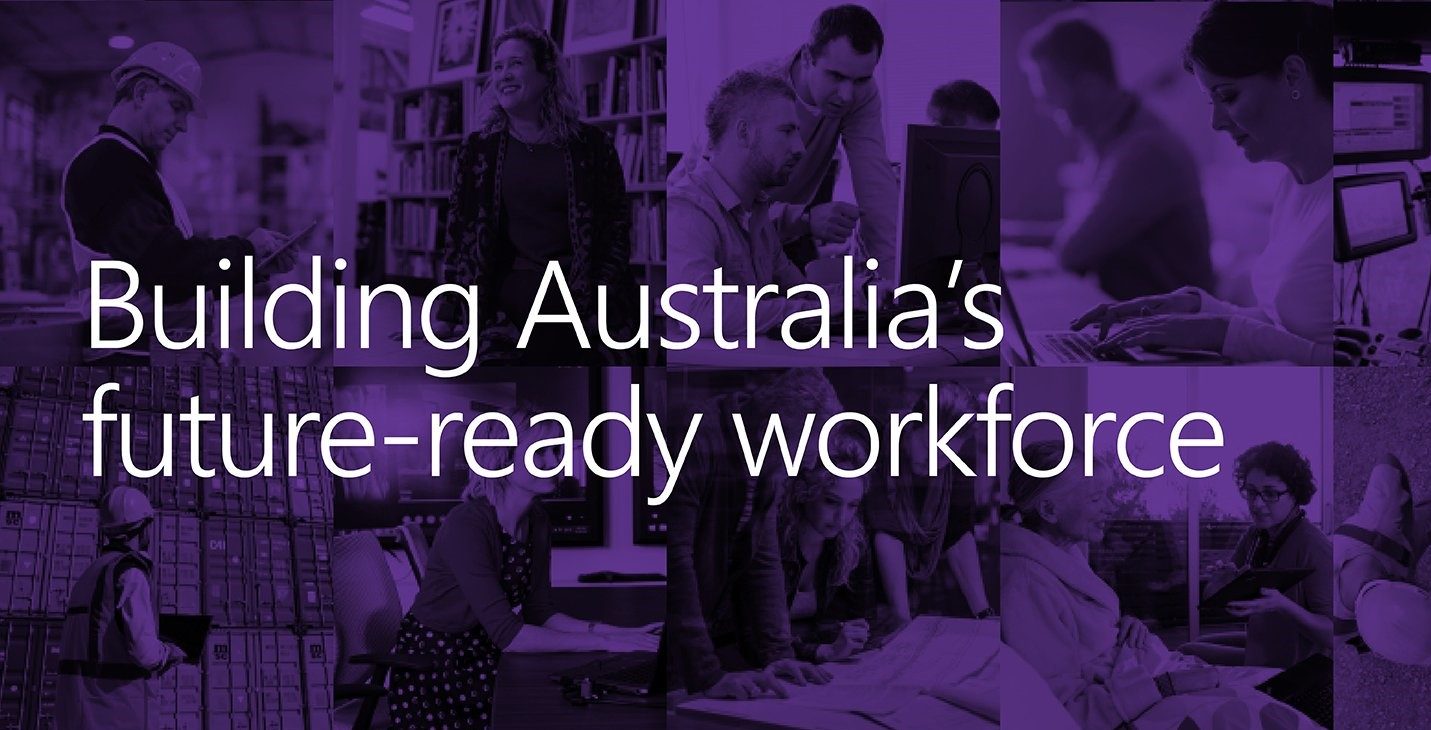By Steven Worrall, Managing Director, Microsoft Australia. This article was originally posted on LinkedIn.

Calling all Aussie workers. Whatever sector of the workforce you’re in, and whether you’re a 30-year veteran or three months out of school, the digital revolution sweeping across Australia will impact you.
You may be what we call a ‘starter’ – a young person who will need to be constantly learning as the skills you’re being taught today may be superseded by the time you finish Uni, or a ‘shifter’ in an industry already being disrupted by technology, a ‘re‑inventor’ working in process-oriented roles that could be automated soon, or a ‘perennial’ and less likely to see your work substantially changed by technology.
To better understand how people may be impacted at different life stages and provide the support they need, Microsoft has just launched a comprehensive study titled Building Australia’s future ready workforce.
The study discusses how organisations are rapidly implementing technology, with some sectors already seeing massive change. Take healthcare: who would have predicted a decade ago that our nurses would be pulling up patients’ records digitally in seconds on a smartphone or tablet, rather than spending hours trawling through a filing cabinet?
We’ve seen similar shifts in industry and working practices in the past (the industrial revolution and the computer age are just two previous examples) and history tells us that workforces are incredibly adaptable.
And while there is no way to accurately predict which jobs will become redundant in the digital revolution and which will grow and prosper, we can take an educated guess. For instance, it’s clear that many routine ‘thinking’ tasks such as office and sales work are now more able to be automated due to advances in computers, the Internet and artificial intelligence. At the same time, there are brand new career areas opening up in areas such as data analysis, creating digital experiences, flying drones and managing change itself.
We believe that the greatest challenge we face as a nation is to overcome complacency. As working Australians, we can’t sit back and wait to see what happens. We need to be fully prepared and that means getting the best training we can to transition our workforce from having the skills needed for today to those needed for tomorrow’s digital age.
But transforming Australia’s skills base is a complex task. It requires a shift towards more on-the-job learning and we need to have the right education and training frameworks in place, and to ensure that vocational education systems are adequately resourced.
At Microsoft, it is our goal – and we think it should be the goal of all companies, governments and organisations across the continent – that nobody gets left behind. We are especially focused on meeting the needs of those who are already employed and may need to retrain.
With this in mind, we are partnering with governments, non-profit organisations, educational institutions and businesses to understand the existing skills and the gaps. Through our National Skills Program, we are kicking off pilot schemes that will help Australian workers develop new and relevant skills. And we are creating approaches and materials that we hope others can draw on to improve digital skills in their own workplaces and communities.
We are calling on Australia to encourage employers to prepare their workforces for the digital era, better understand skills requirements, expand digital literacy, promote ‘micro‑credentials’, do more to support entrepreneurial behaviour, build new businesses to create jobs, and establish a high level of digital connectivity and inclusion.
A lot of good work is already being done. For example, the Automotive Industry Structural Adjustment Programme provides digital literacy training for car production workers experiencing the early stages of job displacement. We’re proud to also be working with the South Australia Government and the City of Salisbury to be providing digital literacy skills to ex-automotive supply chain workers impacted by the closure of local car manufacturing.
At the enterprise level, job-relevant digital skills training is being incorporated into programmes offered at companies ranging from Aldi to Deloitte. Such projects are undoubtedly beneficial, but we need many more if we are to ensure Australia’s track record of 26 years of unbroken economic growth continues.
While there is lots to be positive about with Australia adding 393,000 net new jobs in 2017 and December marking the 15th straight month of job creation, we cannot and should not rest on our laurels.
You can access our report and learn more about Microsoft’s National Skills Program at the link below. My team and I also welcome the opportunity to discuss your unique digital transformation programmes and challenges, so please get in touch.
Download the report: Building Australia’s future ready workforce





